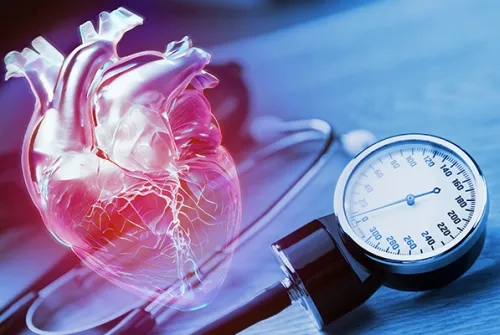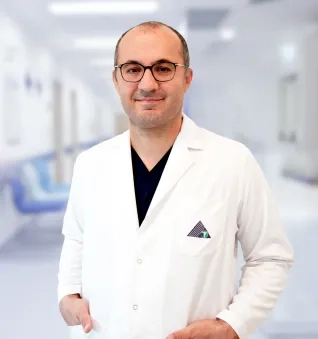Alo Yeditepe
Alo Yeditepe
Renal Denervation in Hypertension Treatment
When Resistance Develops, the Damage Caused by Hypertension Increases Exponentially
According to World Health Organization data, 1.3 billion people live with hypertension and 10-12 percent of these patients are resistant hypertension patients. Pointing out that the damage caused by hypertension increases exponentially in people who develop resistance.
Cardiology Specialist Prof. Dr. Ali BUTURAK pointed out the importance of holistic treatment in this patient group that does not respond to drug treatment. Prof. Dr. BUTURAK said that the 'Renal Denervation' method, which has been on the agenda recently and has started to be used routinely in suitable patients, has yielded positive results in patients who cannot use medication due to side effects or who have medication incompatibility.
Resistant hypertension is defined as the situation where blood pressure cannot be controlled in patients using three or more anti-hypertensive drugs. Cardiology Specialist said that this group of patients constitutes approximately 10-12 percent of all hypertension patients, and pointed out that the damage caused by hypertension can pose a life-threatening risk when resistance occurs.
Our expert explained that the most important cause of patient losses all over the world is cardiovascular diseases, and perhaps the most important one among the diseases that cause this is hypertension, and said that one in every 4 men and one in every 5 women in the world has hypertension.
What is Resistant Hypertension?
Stating that according to the World Health Organization data, 1.3 billion people are diagnosed and monitored due to hypertension, the cardiology specialist explained that this value is expected to reach around 1.6 billion by 2026. Our expert pointed out that although hypertension is one of the diseases that affects many organ systems and can be life-threatening, the damage that occurs in patients who develop resistance is multiplied and continued as follows:
“These patients develop resistance to treatment for different reasons. "This situation can cause life-threatening conditions such as brain hemorrhage, stroke, large vessel ruptures, as well as problems such as heart failure, kidney failure due to chronic exposure, vision defects due to damage to the eyes, and memory loss and dementia."
Drug Use in Resistant Hypertension
Our expert said that the groups at risk for resistant hypertension include people who do not take their medications regularly and who have poor medication compliance or fidelity, and gave the following information about the risk factors for the development of resistance: “The second group most prone to resistant hypertension consists of patients who do not comply with salt restriction. People who are overweight or obese, those with low physical activity, and those with excessive water retention due to kidney failure are the groups most at risk for the development of resistant hypertension. We need to emphasize that excessive alcohol consumption can also trigger hypertension and cause resistant hypertension. Hypertension is a chronic disease that can develop due to different reasons in people of all ages, including children, and resistance development is a part of the disease process. While some patients develop resistance at the time the disease is diagnosed, some patients may develop resistance later due to reasons such as salt consumption, medication incompatibility or disloyalty to treatment, excessive alcohol consumption or weight gain.
How is Resistant Hypertension Treated?
Underlining that resistant hypertension requires a holistic complementary treatment due to both acute and chronic complications, our expert said, “The most important part of this holistic treatment is lifestyle change. Appropriate salt restriction and Mediterranean type eating habits should be acquired, if the patient is overweight or obese, the person should lose weight, if the patient has excessive alcohol consumption, this should be corrected, and smoking should be stopped. Apart from this, medication forms the basis of treatment. We know that in resistant hypertension, there is resistance to treatment despite the use of medication. "For this reason, it is essential for successful treatment that the specialist physician adds the appropriate drug or drugs to the treatment to ensure that the blood pressure is controlled, and that the patient is included in a follow-up program and the effectiveness and safety of the treatment given is checked at regular intervals."
“Renal Denervation is a Part of Complementary Treatment”
Prof. Dr.Ali BUTURAK said that one of the most important methods of holistic treatment, which has recently come to the agenda and started to be used routinely in suitable patients, is Renal Denervation. Dr. Ali BUTURAK said, “This method called renal denervation is a part of holistic hypertension treatment.” Our expert gave the following information about the method:
“In a normal healthy person, blood pressure is kept under control by signal transmissions between the central nervous system and associated nerve networks, our kidneys and the arterial system. These signals are produced by sympathetic nerve fibers, especially those located around the renal arteries. In patients with resistant hypertension, these sympathetic nerve fibers show excessive activity, causing signal production much above normal and, accordingly, excessive stress hormone release. Inappropriate blood pressure increases occur due to excessive stress hormone release. Performed by renal denervation process; Radiofrequency energy is applied to the inappropriately active nerve fibers around the renal arteries, suppressing the inappropriate excessive activity of these fibers and preventing the increase in blood pressure.
The procedure is technically performed in angiography laboratories with the principles of angiography. Generally, the renal arteries are reached by entering through the groin artery, and ablation is performed on the nerve fibers around the renal arteries with the help of special devices called catheters and a radiofrequency energy provider, which allow us to enter the renal arteries. After the ablation procedure, which is performed separately on both renal arteries, is completed, the catheters are removed from the body and the inguinal artery entry area is closed with angiographic technique. The patient is usually discharged the next day after being monitored in the hospital that night.
This complementary interventional method has become safe method on the patiens who have resistant hypertension and whom blood pressure cannot be restrained despite taking 3 and more anti-hypertensive drugs that has became effective in clinical use, with medium and long-term results supported by publications.
In Which Situations Is Renal Denervation Used?
Emphasizing that their main goal here is to control blood pressure, the cardiologist gave the following information about the results obtained at the end of the procedure: “We also have scientific data on this subject; Especially long-term follow-up results show that this method provides a permanent decrease in blood pressure. Scientific study results show us that an average blood pressure decrease of 20 mmHg was achieved in patients, blood pressure control was achieved in 80 percent of the patients, and no risky conditions associated with the procedure developed. In addition, this method was also tested in patients who did not use any medication, and it was shown that a permanent and safe decrease in blood pressure was achieved.
Although the main target patient group for renal denervation is resistant hypertension patients, renal denervation can also be used in patients who are not willing to use medication, who are not loyal to the given treatments, or who cannot use medication due to various drug side effects, and it can be an effective method to provide permanent and safe blood pressure control in these patients has also been reported.''
This content was prepared by Yeditepe University Hospitals Medical Editorial Board.
”
See Also
- What is Heart Rhythm Disorder (Arrhythmia)? Symptoms and Causes
- What is Sudden Cardiac Death? What are the Symptoms?
- Risk Factors in Heart Diseases
- Heart Valve Diseases and Treatment Methods
- How Do Heart Disease Risk Factors Affect Women and Men?
- What is a Heart Attack? What are the Symptoms of a Heart Attack?
- What is Broken Heart Syndrome? Symptoms and Treatment
- Carotid Artery Disease
- What is Renal Denervation?
- What is Intravenous Ultrasound (IVUS)?
- What is TAVI?
- Is Your Heart Ready For Winter?
- The Risk of High Blood Pressure Increases as You Go to High Altitudes
- By 2025, Hypertension Patients Are Expected to Reach 1.5 Billion
- Misconceptions about the Female Heart
- Blood Pressure Holter
- Coronary CT Angiography (Virtual Angiography)
- Effort Test
- Heart Attack Causes and Symptoms
Alo Yeditepe







